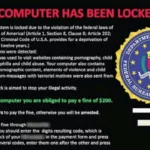While the news of celebrity Twitter accounts being hacked is doing the rounds, reports state that hackers might have used malware to collect over 32 million Twitter login credentials. The report goes on to say that 32,888,300 records have been stolen and these credentials are now being sold on the dark web.
OurMine Takes Credit For Hacking Twitter Co Founder’s Account
On Thursday, Twitter co founder Evan Williams discovered that his twitter account had also been briefly compromised. OurMine, a group which on Monday had taken credit for hacking Facebook chief Mark Zuckerberg’s account, claimed credit for hacking Williams’ account in a tweet on Wednesday, which was deleted minutes later.

Twitter reacts to the security breach. (Photo: iStockphoto)
Twitter Defends Itself
Twitter released a statement saying it does not comment on matters related to individual accounts.
A number of other online services have seen millions of passwords stolen in the past several weeks. We recommend people use a unique, strong password for Twitter.
The company also maintains that its systems have not been breached.
We are confident that these usernames and credentials were not obtained by a Twitter data breach– our systems have not been breached. In fact, we have been working to help keep accounts protected by checking our data against what’s been shared from recent other password leaks.
In the past few days, singers Drake and Lana Del Ray and professional American football league NFL have had to deal with account hacks, as well.

LinkedIn users endured a large scale data breach in 2012. (Photo: iStock)
LinkedIn Security Crisis
The career oriented web platform LinkedIn suffered from large scale hacking and a massive data breach in 2012.
Personal information and passwords of 167 users had been compromised and LinkedIn sent out an email to its users admitting that the massive data breach in 2012 may have resulted in millions of passwords being leaked on the internet.
On May 17, 2016, we became aware that data stolen from LinkedIn in 2012 was being made available online. This was not a new security breach or hack. We took immediate steps to invalidate the passwords of all LinkedIn accounts that we believed might be at risk. These were accounts created prior to the 2012 breach that had not reset their passwords since that breach.
(With inputs from IANS.)








